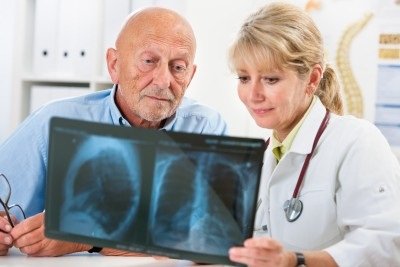Walking Pneumonia Treatment Options In Children And Adults
Walking Pneumonia is a mild form of pneumonia. In fact, some people have the illness and do not even know they have it. Many people with this condition do not need hospitalization. The disease is different to other kinds of pneumonia and affects the lungs. Pneumonia can be caused by bacteria, viruses, fungi, infections agents, chemicals, inhaled food and Mycoplasma. Treatment will vary depending on the root cause of the condition and the age of the sufferer.
What is pneumonia?
Pneumonia is an inflammation of the lungs and can be viral, bacterial or even fungal. Antibiotics do not work for viral pneumonia. Although pneumonia is contagious, another person might catch a simple cold. Bacterial pneumonia is contagious as pneumonia. This is where antibiotics are effective and recommended by medical practitioners. Bacterial pneumonia can cause death. It's important to look out for the symptoms of pneumonia before they get too advanced. Flu like symptoms and chest pain that gets worse when inhaling or coughing up sputum is a sure sign of pneumonia.
Treatments For Walking Pneumonia - Adults
Tetracycline
Tetracycline prevents bacterial growth and actually stops it. It works by stopping the microbes that produce proteins that are necessary for its presence. Tetracycline is looked upon as a weapon of mass destruction for the Mycoplama pnemoniae bacteria. This medication is not suitable or prescribed for children under the age of eight.
Clarithromycin
Available in 250mg and 500mg pills, it is a strong and powerful treatment against walking pneumonia. Clarithromycin stops bacterial growth and completely destroys the bacteria. The double action, kills the infection in only a short amount of time.
Azithromycin
This is better known as Zithromax and effectively defeats the infection. A doctor must prescribe this effective and well tolerable medication. The antibiotic works by eliminating the infection and is similar in action to tetracycline.
Treatments For Walking Pneumonia - Children
Children may need to go to hospital and be observed by a doctor.
Antibiotics are often given to children. Erythromycin, clarithromycin, azithromycin and tetracycline (for kids over 8) are most commonly used for children. A child will not feel better immediately, but the antibiotics will reduce the symptoms. Children need a lot of rest and fluids. Calpol is often chosen to reduce fever and pain. Although Amoxil and cephalosporins do not work for pneumonia they can treat other causes of bacterial pneumonia that make it tricky for pediatricians to choose antibiotics for children.
It is often more difficult to know if a child has this illness because they cannot tell you that it is hard to breathe. Also, they cannot cough well enough to clear their lungs of mucus when it is very deep. Lympha rub on the back of the throat helps to stop a cough in less than ten minutes. Constipation is a common symptom in children who have pneumonia. Therefore, constipation relief medication must be provided for children.
Natural relief for pneumonia involves turning the shower on very hot and letting the bathroom steam up. Keep your child close to the steam, using the shower curtain for a hood. Keep a cupped hand and slap your child on the back. Make sure you slap them nice and hard, but do not hurt them. Do this until they cough. Wait for a few minutes and do it again. Keep a piece of clothing between you and your child so that you're not slapping on bare skin, try to work around the chest, front, back and sides. Keep your child in the steam for at least, ten minutes. Adding a few drops of essential oils will help ease the lungs. Essential oils that are anti-bacterial in nature include; peppermint, eucalyptus, cinnamon, camphor, lemon, garlic oil, oil of oregano, tea tree in a carrier oil, olive oil or coconut oil. Make sure that your child takes probiotics to fight the infection. A few drops of propolis can also help.
Dietary Measures To Help Pneumonia
Do not eat excessive amounts of animal protein. Whilst suffering from pneumonia, gain protein from vegetable sources. Too much animal protein is difficult for the digestive system to digest. Try to eat a well balanced diet full of whole foods. Protein can be gained from beets, spinach, artichokes, cauliflower, peas, potatoes and eggplant.
Drink cranberry and apple juice since this will add antioxidants to your body. Potassium is also a good dietary supplement that will help repair damaged tissue in the lungs. Carrot juice and cayenne pepper helps heal the lungs and adds antioxidants to the damaged tissue. Olive leaf extract works as a natural antibiotic and helps fight infection.
| Written by: | Michal Vilímovský (EN) |
|---|---|
| Education: | Physician |
| Published: | November 17, 2013 at 3:21 AM |
| Next scheduled update: | November 17, 2015 at 3:21 AM |
Get more articles like this in your inbox
Sign up for our daily mail and get the best evidence based health, nutrition and beauty articles on the web.


Ache in left arm that you should not ignore
Alkaline water dangers: why you should not drink it
How to Avoid Sleepiness While Studying?
23 Foods That Increase Leptin Sensitivity
Low dopamine (e.g. dopamine deficiency): causes, symptoms, diagnosis and treatment options
Swollen taste buds: the ultimate guide to causes, symptoms and treatment
Thin endometrial lining: causes, symptoms, diagnosis and treatment
Pimples inside nose: the complete guide
Holes in tonsils: definition, symptoms, treatment and prevention
How to deal with an ingrown hair cyst
Allegra vs. Zyrtec vs. Claritin
How to get rid of phlegm (excessive mucus) in throat? Detailed guide to medical and home remedies, symptoms and causes
What causes stomach ache after meals?
Allergy to penicillin and alternative antibiotics
Liver blood test results explained